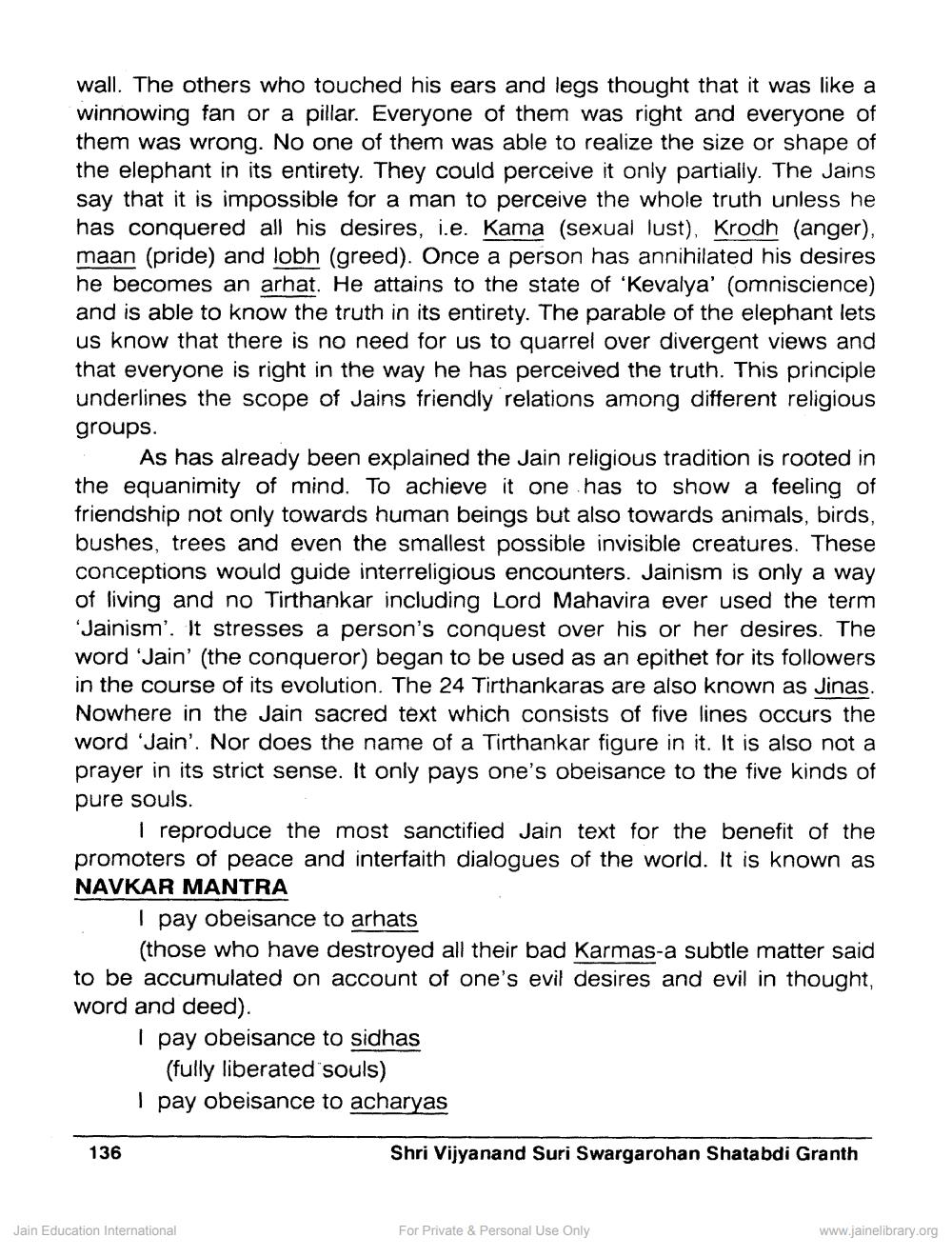Book Title: Jain Religious Traditon Author(s): S L Gandhi Publisher: Z_Vijyanandsuri_Swargarohan_Shatabdi_Granth_012023.pdf View full book textPage 4
________________ wall. The others who touched his ears and legs thought that it was like a winnowing fan or a pillar. Everyone of them was right and everyone of them was wrong. No one of them was able to realize the size or shape of the elephant in its entirety. They could perceive it only partially. The Jains say that it is impossible for a man to perceive the whole truth unless he has conquered all his desires, i.e. Kama (sexual lust), Krodh (anger), maan (pride) and lobh (greed). Once a person has annihilated his desires he becomes an arhat. He attains to the state of 'Kevalya' (omniscience) and is able to know the truth in its entirety. The parable of the elephant lets us know that there is no need for us to quarrel over divergent views and that everyone is right in the way he has perceived the truth. This principle underlines the scope of Jains friendly relations among different religious groups. As has already been explained the Jain religious tradition is rooted in the equanimity of mind. To achieve it one has to show a feeling of friendship not only towards human beings but also towards animals, birds, bushes, trees and even the smallest possible invisible creatures. These conceptions would guide interreligious encounters. Jainism is only a way of living and no Tirthankar including Lord Mahavira ever used the term 'Jainism'. It stresses a person's conquest over his or her desires. The word 'Jain' (the conqueror) began to be used as an epithet for its followers in the course of its evolution. The 24 Tirthankaras are also known as Jinas. Nowhere in the Jain sacred text which consists of five lines occurs the word 'Jain'. Nor does the name of a Tirthankar figure in it. It is also not a prayer in its strict sense. It only pays one's obeisance to the five kinds of pure souls. I reproduce the most sanctified Jain text for the benefit of the promoters of peace and interfaith dialogues of the world. It is known as NAVKAR MANTRA I pay obeisance to arhats (those who have destroyed all their bad Karmas-a subtle matter said to be accumulated on account of one's evil desires and evil in thought, word and deed). 136 I pay obeisance to sidhas (fully liberated souls) I pay obeisance to acharyas Jain Education International Shri Vijyanand Suri Swargarohan Shatabdi Granth For Private & Personal Use Only www.jainelibrary.orgPage Navigation
1 2 3 4 5 6 7 8
